Western balsam bark beetle
Dryocoetes confusus
The western balsam bark beetle is the most destructive insect of subalpine fir in British Columbia, causing scattered mortality over large areas of its host in B.C.
This beetle impacts high-elevation ecosystems. It is the primary disturbance agent in subalpine fir forests and a factor in ecosystem resilience and regeneration.
On this page
Description
Adults are 3.4 to 4.3 millimetres long, dark brown and covered with erect, red-brown hairs.
The life cycle of western balsam bark beetle normally requires two years. Adult beetles emerge in late May or June. After attacking a new host tree, the adult beetles construct egg galleries that have a central nuptial chamber with brood galleries radiating from the top and bottom.
Due to its complex biology, the western balsam bark beetle's damage is widespread with low severity. The western balsam bark beetle is managed primarily by harvesting dead and dying trees when found.
Host tree species
Primarily mature subalpine fir is attacked, and occasionally amabilis fir. Some attacks of white spruce and Engelmann spruce have been recorded.
Damage symptoms
The foliage of an attacked tree will change from green to a bright brick-red in the year following the attack, though the red needles may be retained for up to five years.
The extent of an infestation is difficult to determine as a result of overlapping life cycles, a lack of telltale pitch tubes, and the fact that the majority of the attacks occur above two metres on the bole. Newly attacked trees show pitch streaming along the bole, and a mixture of boring dust and frass in bark fissures and at the base of the tree.
Normally, less than 5% of a stand is attacked in a single season, with the damage usually scattered throughout the stand.
The adult carries a lesion-causing fungus, Ceratocystis dryocoetidis, which is responsible for an estimated 65% of the mortality associated with western balsam bark beetles. The lesions caused by the fungus may girdle and kill a tree, or make the tree susceptible to further beetle attacks.
Identification images
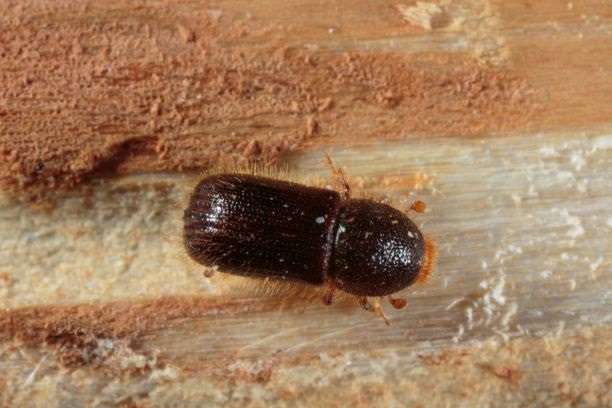
Adult western balsam bark beetle
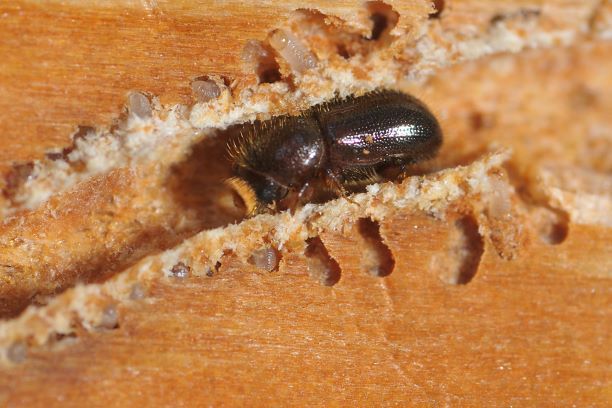
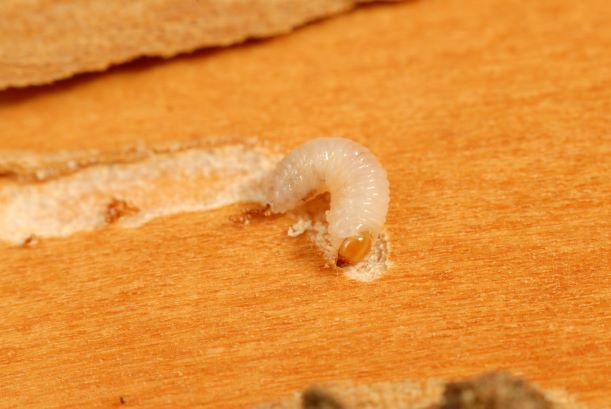
Larva
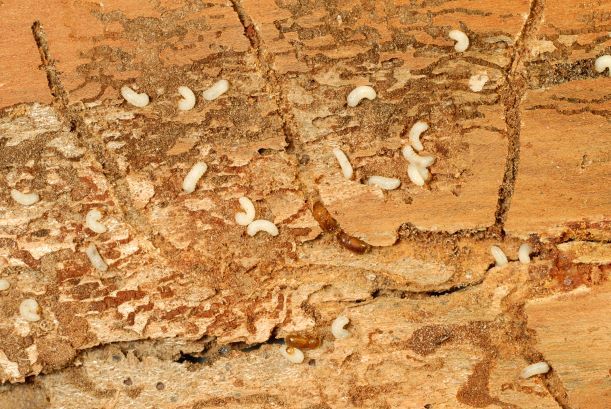
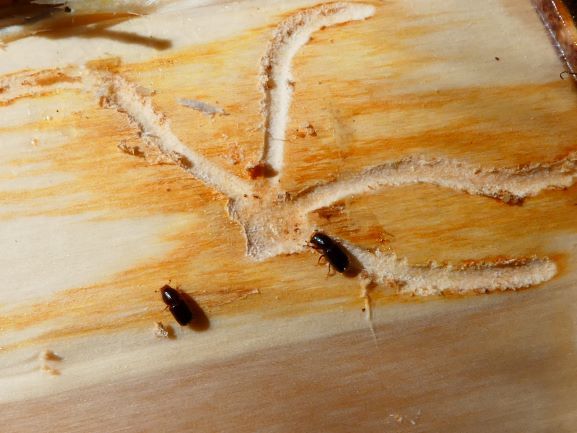
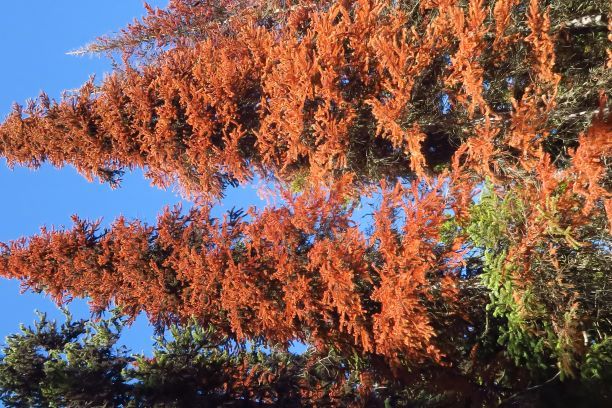
Attacked trees
